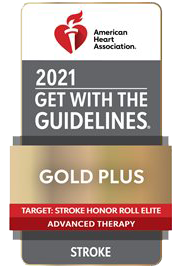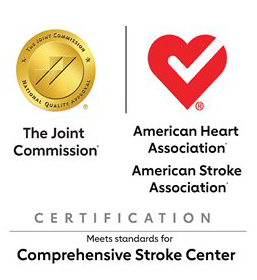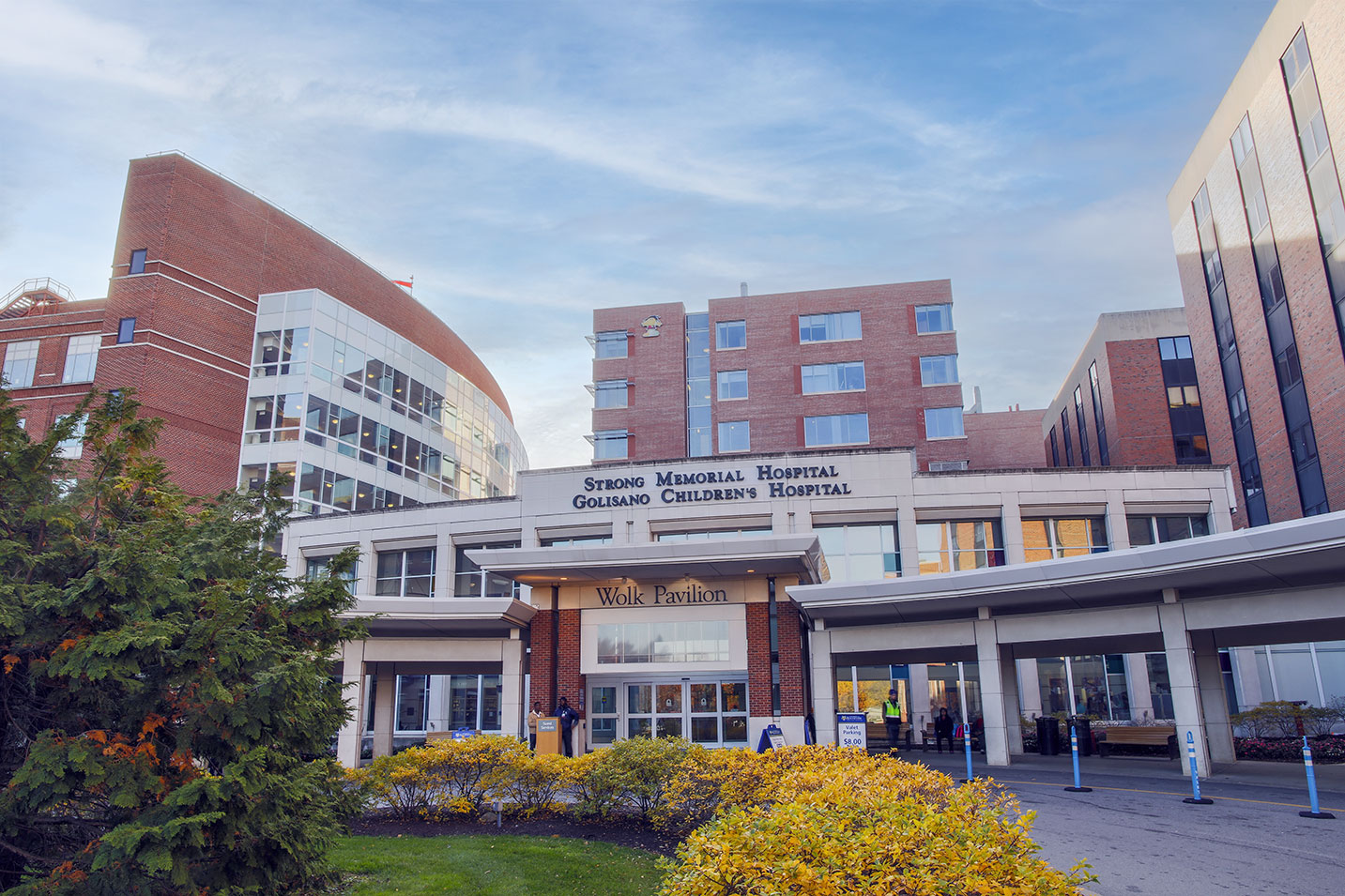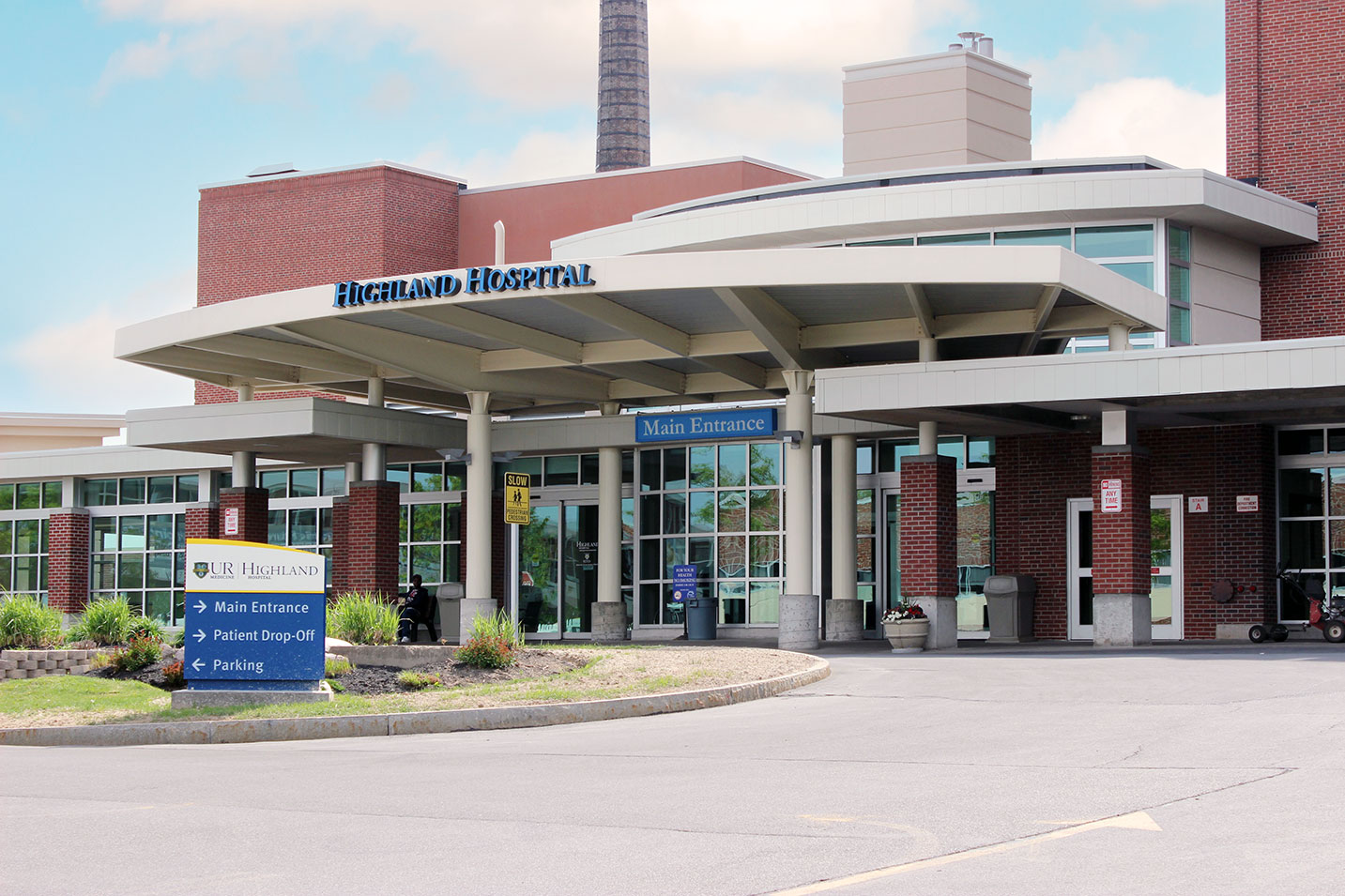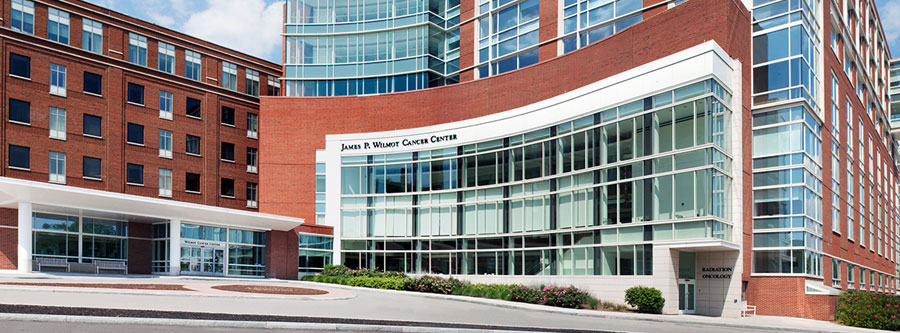Stroke
Comprehensive Care for Stroke
Make Appointments & Get Care
Overview
Stroke is a medical emergency where every second counts.
A stroke results from the blockage (ischemic stroke) or bursting (hemorrhagic stroke) of blood vessels to the brain. This means not enough oxygen reaches brain tissue, so brain cells begin to die. As this happens, patients experience loss of function/malfunction of that region of the brain.
About one quarter of patients experience a warning sign—a mini-stroke (called a transient ischemic attack, or TIA). A TIA does not leave permanent damage but warns that a more serious stroke is coming soon. It’s important that TIAs are treated urgently to prevent future strokes.
Remember the phrase FAST:
Face: is one side drooping?
Arms: is one arm hard to lift?
Speech: is speech slurred or confused?
Time: if you see any of those signs, it’s time to call 911 immediately. Every second counts.
Time is Brain. Suspect a Stroke?
Call 911UR Medicine's Treatments for Stroke
Diagnosis
Stroke patients are assessed quickly in the emergency department by a specialized stroke team that includes vascular neurologists, neurosurgeons, and emergency physicians.
A variety of imaging techniques are used in stroke diagnosis, including:
By these techniques the doctors can pinpoint the area of stroke in the brain as well as the area of blockage of the vessels.
In patients with an “ischemic stroke” (i.e., no blood is seen on their initial CT scan) who arrive in time, a clot-busting medication called tPA can be used to open blocked arteries.
In patients with hemorrhagic stroke (bleeding in the brain), control of blood-clotting factors, blood pressure, and even emergency surgery might be needed.
After initial treatment, patients are either admitted to a dedicated stroke unit or may first require critical care in our neurointensive care unit.
Surgical Treatments
Some patients need emergency surgery to treat blocked or bleeding brain blood vessels.
Our neurosurgeons are fellowship-trained to use special catheters (tiny tubes) and devices to open blocked brain arteries to restore blood flow to the brain.
Following recovery from stroke, our cerebrovascular neurosurgeons can perform surgery or stenting to open a narrowed artery that caused the initial stroke, helping prevent future problems.
Patients with stroke caused by leaking blood vessels (such as burst brain aneurysms or AVM) may require embolization, which uses wires and catheters inside the arteries, and/or open brain surgery.
Recovery & Rehabilitation
Our multidisciplinary stroke team helps manage all aspects of recovery.
While some patients recover within days, it is not unusual for recovery to take weeks to months.
To help stroke patients recover to their maximum potential, each patient is evaluated for their physical, occupational, and speech therapy needs, along with intensive rehabilitation and preventative care to minimize chances of a future stroke.
Neurological rehabilitation may consist of physical or occupational therapy, medicine prescription, modalities, orthotics / bracing, speech and language therapy, or neuropsychology and referrals to other disciplines when needed.
Patient Stories
Kathleen is a Stroke Survivor
Quick Treatment Saved Doug's Life
Every year 140,000 people lose their lives to a Stroke. Because of his wife and the UR Medicine Mobile Stroke Unit, Doug is not one of them.
What Sets Us Apart?
UR Medicine's Comprehensive Stroke Center offers world-class treatment and prevention of stroke, including the Rochester metropolitan area and surrounding region's only Mobile Stroke Unit and dedicated Neuromedicine Intensive Care Unit. The Mobile Stroke Unit drives to people having strokes, saving precious time in delivering life-saving care. The Neuromedicine Intensive Care Unit treats critically ill patients with complex neurosurgical illnesses.
Our facilities include the most advanced MRI and CT capabilities, dedicated neurointensive care unit, and hybrid intraoperative/endovascular biplane angiosuite—technology that improves safety, quality of care, and capacity for complex procedures.
Our neurosurgeons have extensive, subspecialty training in life-saving surgeries. We perform the largest number of these procedures in the Rochester metropolitan area and surrounding region.
of 2
-
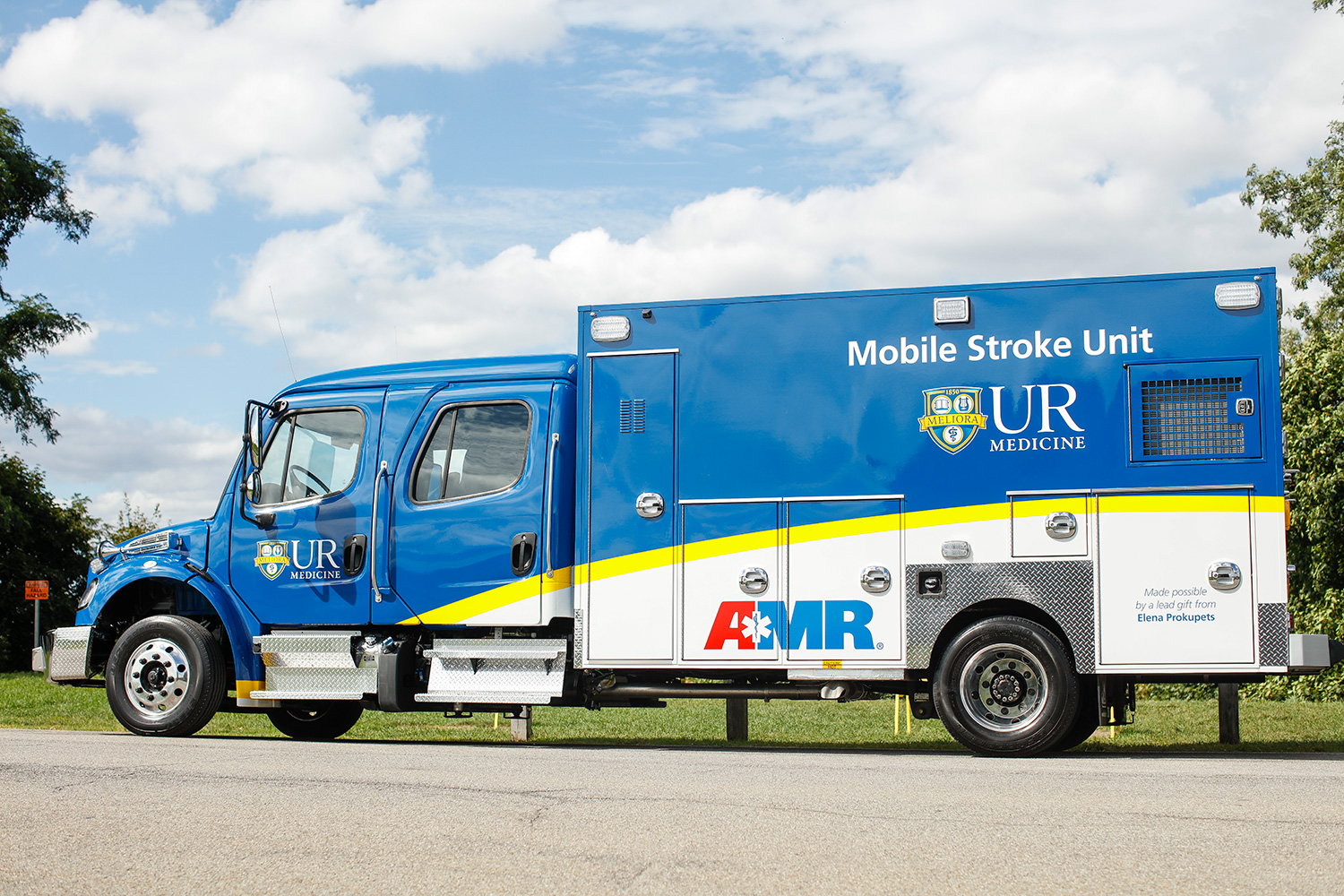
Image: Mobile Stroke Unit: The first of its kind in the Western and Central New York, brings the resources of an emergency room directly to the stroke victim’s driveway.
-
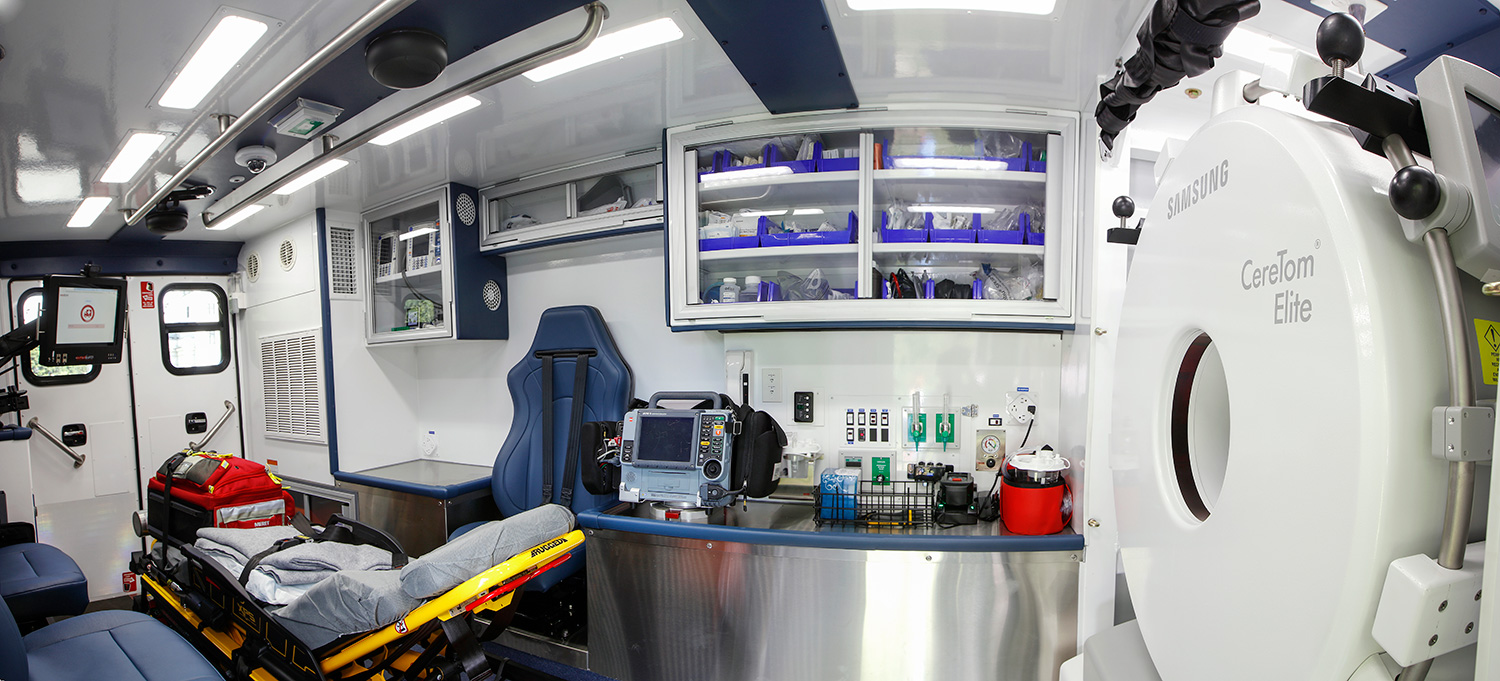
Image: Interior view of Mobile Stroke Unit
Providers
Locations
View All LocationsWe serve you in the Rochester metropolitan area and surrounding region.
View All Locations10 locations
Clinton Woods
2365 South Clinton Avenue, Suite 200
Rochester, NY 14618
Clinton Crossings, Building F
2400 South Clinton Avenue
Rochester, NY 14618
Clinton Crossings, Building F
2400 South Clinton Avenue
Rochester, NY 14618
Strong Memorial Hospital
601 Elmwood Avenue
Rochester, NY 14642
Highland Hospital
1000 South Avenue
Rochester, NY 14620
5901 Lac De Ville Boulevard
Rochester, NY 14618
Strong Memorial Hospital
601 Elmwood Avenue
Rochester, NY 14642
Wilmot Cancer Institute
601 Elmwood Avenue, 1st Floor, Suite C
Rochester, NY 14642
1340 Washington St, Suite 3
Watertown, NY 13061
Patient Education & Support
Related Services & Conditions
- Traumatic Brain Injury
- Balance Disorders
- Carotid Artery Disease
- High Cholesterol
- Left Atrial Appendage Occlusion
- Balance Training
- Cognitive Rehabilitation
- Inpatient Acute Rehabilitation
- Neurological Rehabilitation
- Neuropsychology Service
- Occupational Therapy (OT)
- Physical Therapy
- Vascular Care
- Neurological Disorders
- Sickle Cell Disease
- Neurosurgery
- Neurology
- Palliative Care
- Diagnostic and Interventional Neuroradiology
- Vascular and Interventional Radiology
- Dysarthria
- Facial Paralysis
- Cognitive-Communication Disorders
- Women's Heart Program
- Neurorehabilitation
- Speech Therapy
- Brain and Spinal Cord Injury Program
- Trigeminal Neuralgia
- Stroke Rehabilitation
